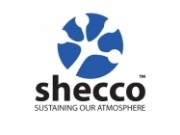We are proud to announce that we have selected the first five Technology Case Study Presentations to be given at ATMOsphere America 2012. Below you will find a short summary of the case studies selected:
- Ammonia/CO2 Cascade Refrigeration System at a Defense Commissary Agency Project by Rob Arthur CTA Architects Engineers: The goal of the project was to develop a commercial refrigeration system that was more energy efficient and more environmentally friendly then the standard refrigeration systems being used in U.S. Grocery Stores today. Project sponsor is the Department of Energy through the Commercial Building Partnership program that is managed by National Renewable Energy Lab (NREL). The Ammonia/CO2 Cascade system is predicted to be at a minimum 10% more energy efficient with very little global warming potential and no Ozone Depletion Potential.
- SUPERVALU’s Development of Next Generation Refrigeration Systems: Application of Ammonia, CO2, and Propane by Richard Heath, SUPERVALU and and Jim Armer, CTA Architects Engineers : In late July of 2012, SUPERVALU will be opening their first complete natural refrigeration store in the country. Through application of original technologies and innovations with the natural refrigerants ammonia, carbon dioxide, and propane, an industry influencing solution will be available. An on‐site comparison will be made between the ammonia primary system and a redundant R407A primary system. The result from this comparison will allow SUPERVALU and the industry to understand the achievable balance of Total Equivalent Warming Impact (TEWI), equipment and operating costs, maintenance considerations, and repeatability.
- Industrial Ammonia Heat Pumps in Food Processing by Sam Gladis, Emerson/Vilter: Applying a sustainable alternative to the use of fossil fuels as the means to heat water for sanitation, Krafts Food, a leading food processor installed an industrial ammonia heat pump. Renewing the use of the heat rejected from their ammonia refrigeration system, the industrial heat pump reduced their heating energy costs by 61%, reduced site energy consumption for heating by more than 79%, reduced condenser water consumption by 15 million gallons per year, and delivers a host of additional operational and maintenance savings. This case study will provide a description of the project, the expected results and savings, a detailed system description, experience with the operation and maintenance of the system, actual results, and recommendations and conclusions.
- Commercial and Industrial Hot Water from Transcritical CO2 Heat Pumps by Merle Rocke, EcoThermics: A Midwestern commercial bakery is implementing a transcritical CO2 heat pump system to significantly reduce its energy costs. The CO2 heat pump system will simultaneously produce high temperature hot water for washing baking equipment and cool, comfortable air conditioning for employees. Energy savings in excess of 50% are expected from this project. As a natural refrigerant, CO2 provides the ultimate environmentally friendly system - lower total energy consumption and zero Greenhouse gas emissions. This case study will be based upon early data from commercial operation.
- EPA-Approved Multiblend Pure‐Hydrocarbon Refrigerant Used for Air-Conditioning and Refrigeration Applications by Richard H. Maruya and Steven Mella, AS TRUST: As the first hydrocarbon refrigerant to be approved for sale in the United States, R441a is a blend of pure hydrocarbons. Compared to single‐component hydrocarbons, these blended hydrocarbons demonstrate higher energy savings, reduced charge rates, lower risk of flammability, smaller size system components, improved cooling capacity, faster cooling operation and reduced component wear. This paper describes the successful use of R441a in a Whirlpool residential refrigerator, a Haier residential refrigerator and a Toyota T100 truck, as well as case study results for use of R443a in two commercial air‐conditioning units at Cal Expo. Operational, efficiency and cost results are presented, along with a discussion of lessons learned and plans for the next installations.
SCM Frigo - new Silver Sponsor
In addition, we are happy to announce that SCM Frigo has decided to support the event as Silver Sponsor.
SCM Frigo: The Italian-based international company develops a wide product range, including condensing units, power packs and chillers, for both indoor and outdoor installation. In 2004, the manufacturer presented a renewed range of units, with substantial technical and construction improvements for a CO2 subcritical production line. The CO2 line was extended in 2005 with a transcritical line and in 2008 with a CO2 transcritical booster line as well.
RSES - new Bronze Sponsor
RSES - The HVACR Training Authority: RSES, the Refrigeration Service Engineers Society, is one of the world’s leading education, training and certification association for heating, ventilation, air conditioning and refrigeration professionals. Founded in 1933, RSES is a non-profit organization of more than 15,000 members in 225 chapters in the U.S. and Canada, as well as affiliate organizations worldwide.
